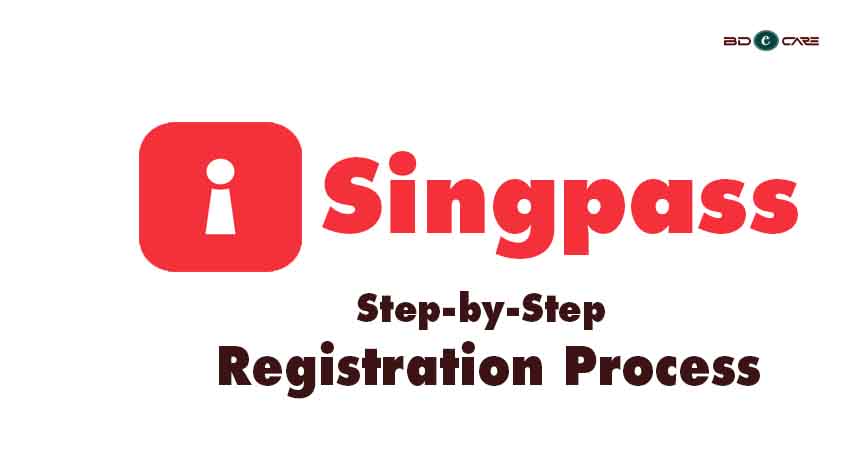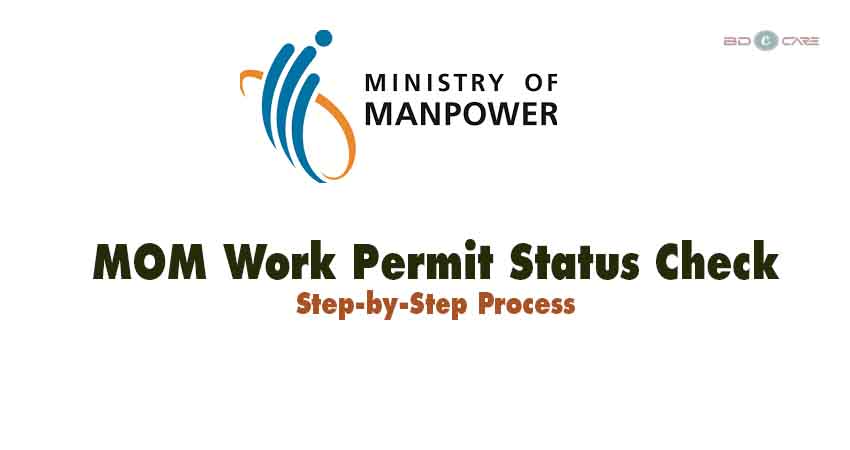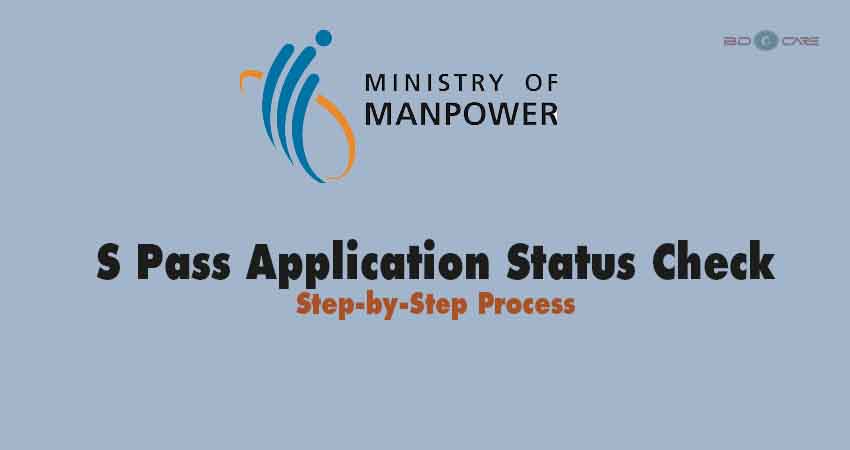To get a Permanent Residency in Singapore, every applicant has to complete a Singapore PR Application. Becoming a Singapore Permanent Resident is a highly sought-after status, and for good reason.
Singapore consistently ranks as one of the world’s top countries for quality of life, offering political stability, cultural diversity, excellent healthcare and education, and a thriving open economy, as recognized by the World Economic Forum.
With a population of over 5.6 million, Singapore is home to a diverse community of residents.
Among them, more than 500,000 are Singapore Permanent Residents, while an additional 1.6 million are foreign workers and students contributing to the nation’s dynamic and cosmopolitan fabric.
Permanent Residence in Singapore
Singaporean Permanent Residency (PR) is a privileged immigration status, granting most rights and obligations akin to citizens, including National Service (NS) for eligible males.
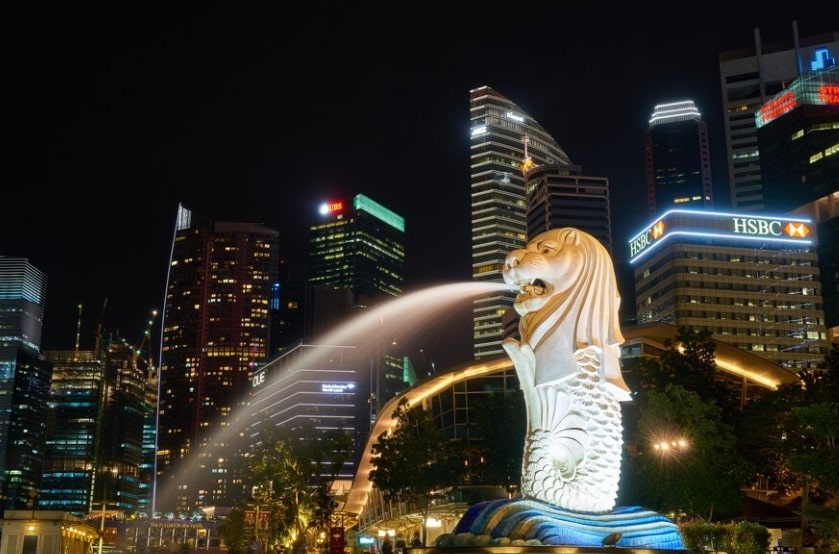
However, PRs can’t vote, hold public office, receive certain public benefits, or have priority in public school placement. They enjoy long-term residence and work rights but need a Re-Entry Permit (REP) to stay PRs.
If a REP is not renewed, PR status may lapse. ICA typically renews REPs every 5 years, contingent on the PR’s presence and activity in Singapore.
Who Can Apply for Permanent Residency in Singapore?
Singapore offers a pathway to Permanent Residency (PR) for a variety of individuals who meet specific eligibility criteria. If you aspire to become a PR in Singapore, here’s a breakdown of who can apply:
- Employment Pass, Personalized Employment Pass, EntrePass, or S Pass Holders
- Individuals Planning to Retire in Singapore
- Spouses of Singapore Permanent Residents or Citizens
- Children Under 21 of Singapore Permanent Residents or Citizens
- Aged Parents of Singapore Citizens
- Student Pass Holders
- Foreign Investors
This not only benefits the investor but also contributes to the growth of the local economy.
Singapore PR Application Step-by-Step Full Process
Your journey towards Singapore Permanent Residency involves navigating a structured application process.
The filing procedure, managed through the ICA E-PR System, comprises several steps to ensure the smooth submission of your PR application. Here’s a unique breakdown of the six essential stages:
Step 1: Log in to the Singapore e-PR System
- Commence your application by accessing the Singapore e-PR system through your Singpass credentials.
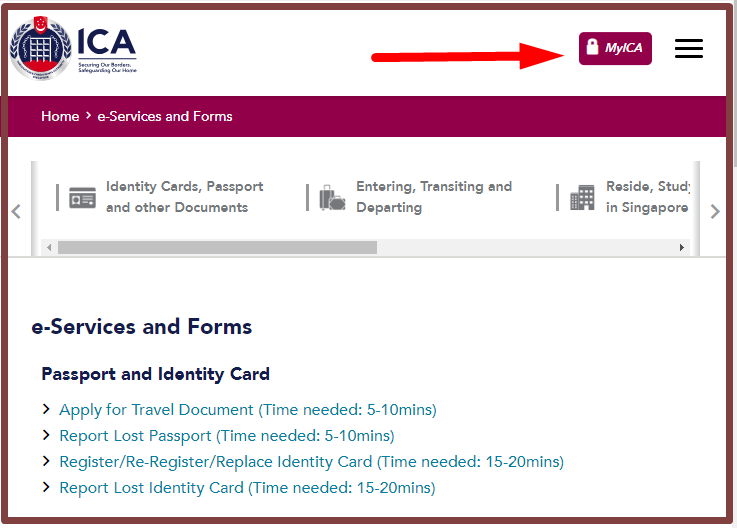
- Once logged in, you’ll download the Singapore PR application form in PDF format.
You can also download the PR Application Form below we have provided.
Step 2: Complete the Form
- In the next step, you must meticulously fill out the application form. However, there’s no need to print the form and manually write on it.
- You can input the required information directly on the digital form using your computer.
Step 3: Upload it within Seven Days
- After completing the form, you have a seven-day window to upload it to the e-PR system.
- Before uploading, conduct a thorough proofreading to guarantee the accuracy of the information provided.
Step 4: Attach all Scans
- Along with your application form, you will need to attach scans of all the supporting documents that substantiate your eligibility.
- For instance, passport-sized photographs should be in JPEG format, while other documents should be in PDF or JPEG format.
- Be mindful that document size should not exceed 2MB, ensuring smooth upload and processing.
Step 5: Declarations
- As part of the finalization process, you will be required to file and confirm various declarations.
Step 6: Pay Prescribed Fee
- In the concluding stage of your Singapore PR application, you must pay the stipulated processing fee.
- After a few days from the time of submission, you can begin monitoring the status of your PR application.
PR Application Form Singapore PDF Download
Attached, you will find the official PR application form for Singapore.

It serves as the foundation for your application, so be sure to complete it accurately and comprehensively to enhance your chances of a successful PR application.
Required Documents for Singapore PR Application
When applying for Permanent Residency (PR) in Singapore, it’s crucial to compile a comprehensive set of supporting documents to strengthen your case.
These documents demonstrate your eligibility and commitment to becoming a permanent resident. The following is a list of essential documents you should prepare:
- Passport Copies
- Immigration Pass Copy
- ID Copy (if applicable)
- Change of Name Documentation (if applicable)
- Educational Certificates
- Passport-Sized Digital Photo
- Declaration Form
Additional Documents for PR Application for Specific Cases
For Employment Pass (EP) or S Pass Holders
- A letter from your employer stating your position, salary, and the date of employment.
- Pay slips from the last six months.
- Testimonials from any previous employers, specifying your position, duration of employment, and last salary (EP/S Pass applicants only).
For Self-Employed Applicants
- Valid Business Registration Certificate displaying the names of all business partners and any licenses related to your occupation.
For Spouses and PR Applicants Sponsoring Spouses
- Official marriage certificate.
- Birth certificates of children or adoption papers (if applicable).
- Custody papers of children from previous marriages (if applicable).
- Death certificate or marriage certificate from a previous marriage (if applicable).
For Children Applying for PR
- A birth certificate or household census that states both parents’ names.
- Adoption papers (if applicable).
- Custody papers (if applicable).
For Foreign Students Applying for PR
- Copies of educational certificates.
- Copies of transcripts.
- Copy of vocational trade certificates.
- Copies of any professional licenses/membership certificates.
- Copies of your parents’ passports, showing their details.
- Your birth certificate or an official household census showing your parents’ names.
Please note that all documents must be in English. If they are not, they must be translated. The ICA (Immigration and Checkpoints Authority) will accept translations from the following sources:
- Translations by the embassy of the country that issued the document.
- Translations by a notary public in Singapore or the country that issued the document.
Privately translated documents authenticated by the embassy of the country that issued the document or a notary public in Singapore or the issuing country.
Keep in mind that the specific documents required can vary depending on your case, and the ICA may request additional documents as necessary.
Read also about ICA Passport Renewal in Singapore
PR Application Fee in Singapore
the cost associated with obtaining a Permanent Residency (PR) in Singapore includes several fees.
These fees are an essential part of the application process and help cover administrative and processing expenses. However, please note that fees and requirements may change over time.
The fees associated with a PR application in Singapore are as follows:
- Processing Fee: Each PR applicant was required to pay a non-refundable processing fee of S$100 at the time of submitting their application. This fee covered the initial evaluation and processing of the PR application.
- Entry Permit Fee: If your PR application was approved, you would need to pay an additional fee of S$20 for the Entry Permit. The Entry Permit is an essential document that grants you legal PR status in Singapore.
- Re-Entry Permit Fee: A Re-Entry Permit is necessary for PRs to retain their PR status while traveling outside Singapore. The fee for a 5-year Re-Entry Permit was S$50.
- Identity Card Fee: PR applicants who were granted PR status were required to obtain an Identity Card. The fee for this card was S$50.
- Entry Visa Fee (for foreigners requiring a visa): If you were a foreigner requiring an entry visa to enter Singapore, a fee of S$30 per entry visa might have been applicable.
The fees mentioned above can be paid using various payment methods, including NETS, credit cards (Visa or MasterCard), or mobile payment systems.
However, please be aware that the specific fees and payment methods might change over time, and the government could revise its fee structure.
Permanent Residency Application Processing Time
The Singapore PR application process usually takes 4 to 6 months. Use the eService to track your application.
Once approved, you’ll be notified and can collect your PR ID Card at the Permanent Resident Services Centre.
The Benefits of Singapore Permanent Residency
Attaining a Permanent Residency (PR) in Singapore is a highly sought-after status that provides a wealth of advantages and opportunities for individuals and their families.
In the heart of this vibrant city-state, the allure of Singapore PR status transcends conventional benefits. Here are some of the unique advantages that set it apart:
- Experience a diverse cultural mix.
- Stay updated with cutting-edge advancements.
- Indulge in global culinary delights.
- Enjoy urban living amid natural beauty.
- Learn multiple languages easily.
- Immerse in the arts and cultural scene.
- Build lasting relationships in local communities.
- Support eco-friendly initiatives.
- Develop resilience in a dynamic environment.
- Celebrate diverse cultural festivals.
- Benefit from top-notch infrastructure.
- Explore historical landmarks and modernity.
- Embrace a society that values diversity.
- Enjoy cosmopolitan lifestyle amenities.
- Access health and wellness options easily.
FAQs About Permanent Residence in Singapore
Here are some frequently asked questions (FAQs) and their answers to help clarify the PR application process:
Who is eligible to apply for Singapore PR?
Eligibility criteria can vary, but common categories include Employment Pass, S Pass, spouses of Singaporeans, and foreign investors. Specific criteria depend on your category.
How long does the PR application process take?
On average, PR applications are processed in four to six months. However, this can vary based on the complexity of your case.
Are there any age restrictions for PR applicants?
There are no specific age restrictions for PR applicants. Eligibility is primarily determined by the category under which you are applying.
Can I apply for PR if I’m a student in Singapore?
Yes, students who have completed their education in Singapore and meet certain criteria may be eligible to apply for PR.
What documents are required for a PR application?
Necessary documents may include passport copies, educational certificates, employment-related documents, and additional category-specific requirements.
Are there fees associated with a PR application?
Yes, there are fees for PR applications, including a processing fee and other specific fees based on your application category.
Can PR applicants work and live anywhere in Singapore?
PR status allows you to live and work anywhere in Singapore, providing greater flexibility in your career and housing choices.
Is it possible to apply for PR while residing outside Singapore?
Yes, you can apply for PR while living outside Singapore. However, certain in-person requirements may necessitate your presence for the final stages of the application process.
What is the validity of a Singapore PR?
A Singapore PR status is valid indefinitely, but PRs must renew their Re-Entry Permits if they wish to travel abroad for extended periods.
Can PR holders apply for citizenship?
Yes, PR holders meeting specific requirements can apply for Singaporean citizenship.
What happens if my PR application is rejected?
If your application is rejected, you can reapply at a later date. The rejection does not prevent you from applying again.
Final Words
Pursuing a Permanent Residency in Singapore is a significant endeavor, offering access to a host of benefits in a nation known for its quality of life and economic opportunities.
As you embark on this journey, remember that the process may evolve over time, and staying informed about the latest guidelines and requirements is crucial.
The allure of becoming a Singapore Permanent Resident lies in the promise of a stable and prosperous future, where cultural diversity, world-class healthcare, and education are just a few of the many advantages.

